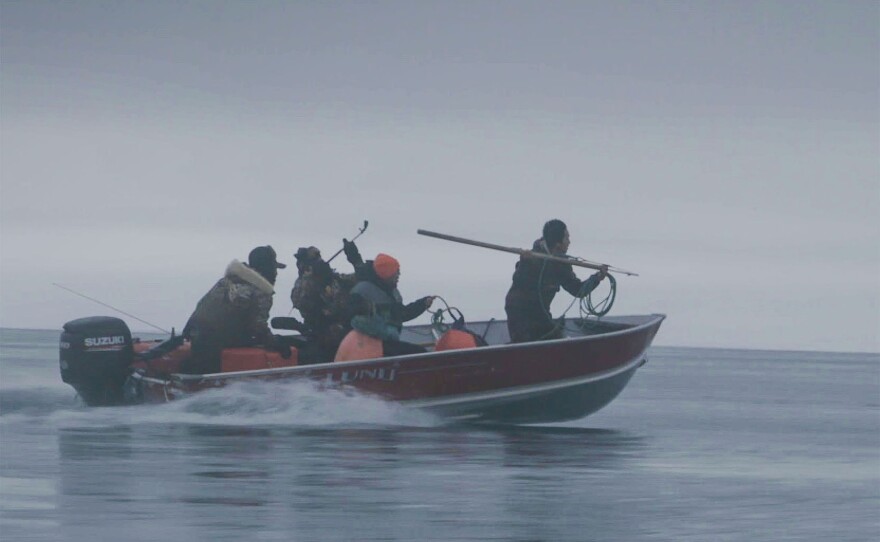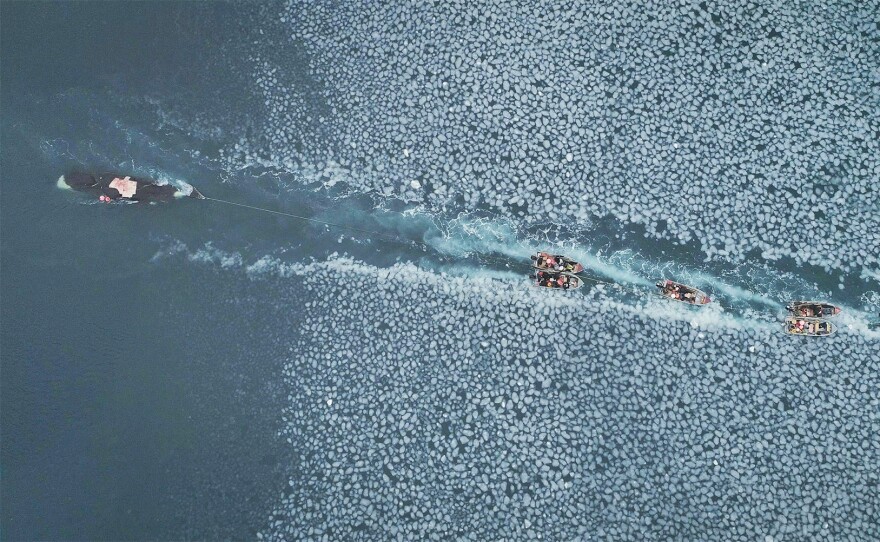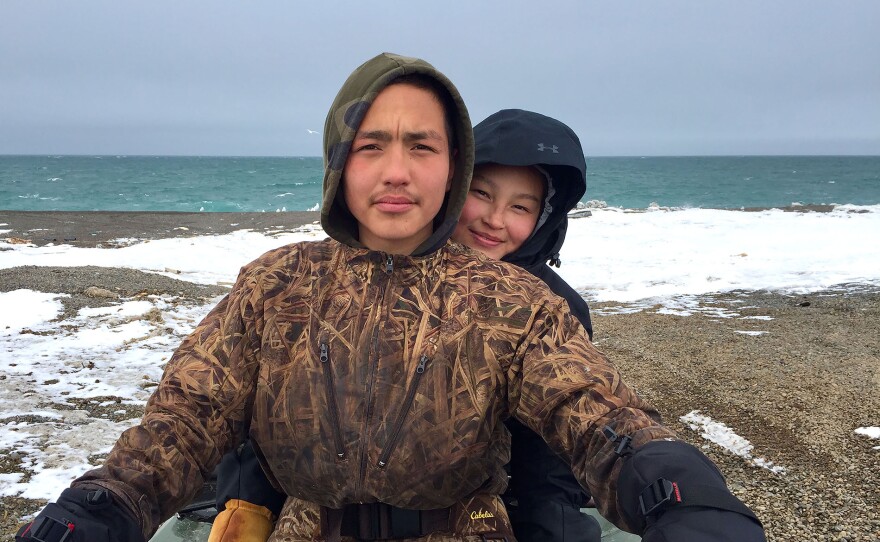Premieres Tuesday, April 23, 2024 at 10 p.m. on KPBS TV / PBS App
Co-directed by Pete Chelkowski and environmental journalist Jim Wickens, “One with the Whale” explores the traditions, values, and lifestyles of a tight-knit Alaska Native village in the aftermath of vicious online attacks.
In St. Lawrence, Alaska, a remote island in the Bering Sea where hunting whales is a matter of life and death, a shy Native teen, Chris Apassingok, became the youngest person ever to harpoon a whale for his village. His family gets blindsided by thousands of keyboard activists brutally attacking him online—without fully understanding the importance of the hunt to his community's survival.

“One with the Whale” chronicles the obstacles Chris and his family face, amidst larger currents of food security, environmental racism, climate change, cultural genocide, and social media. The livelihood of the Apassingoks and their village are threatened as they search for a balance between modernity and a traditional subsistence lifestyle.

Filmmakers Quote:
“So often, marginalized communities, people of color, and Indigenous communities are attacked while carrying out subsistence traditional hunting activities,” said co-Directors Pete Chelkowski and Jim Wickens. “In sharing the Apassingok family’s story, our goal is to help people from all walks of life confront environmental racism through a better understanding of Indigenous knowledge systems and sustainable land stewardship.”
Chelkowski and Wicken first worked together on a series investigating illegal fishing a thousand miles deep in the Pacific, and encountered children on these boats, initially presuming there could be child enslavement involved. When they realized the fishermen were fathers and sons, it became apparent that there was more to uncover about these dangerous fishing practices. Hoping to find an incident that could expose the innate racism in the environmental movement, they came across Assapingok’s story, connecting with the family via Facebook before making the long trek out to St. Lawrence Island.

The whale in question was a 200-year-old, 57-foot bowhead whale that fed the village of nearly 700 people for several months. The hunting of whales for subsistence is protected in these areas, and can only be harvested during certain times of the year due to weather conditions. Climate change has directly affected their hunting success, as the absence of ice—where most marine mammals would typically rest—makes these elusive whale hunts all the more necessary.
Watch On Your Schedule: “One with the Whale” will debut on PBS’s INDEPENDENT LENS on Tuesday, April 23, 2024. The film will be available to stream on the PBS App and will also be accessible via PBS’s flagship YouTube channel beginning on Earth Day, Monday, April 22.
Credits: The film was produced in partnership with Vision Maker Media. Directors: Peter Chelkowski and Jim Wickens. Producers: Yaari Walker, M. Watanabe Millmore, Aakapak Apassingok. Executive Producers: Lois Vossen, Justine Nagan, Alex Lieberman, Bonni Cohen, Sivuqaq Inc, Tracy Ricard.
“‘One with the Whale’ will be a powerful catalyst for dialogue, challenging viewers to consider the delicate balance between tradition and progress, survival and sustainability,” said Lois Vossen, executive producer of INDEPENDENT LENS. “This documentary is a compelling testament to resilience, cultural heritage, and the urgent need for understanding in a rapidly changing world.





